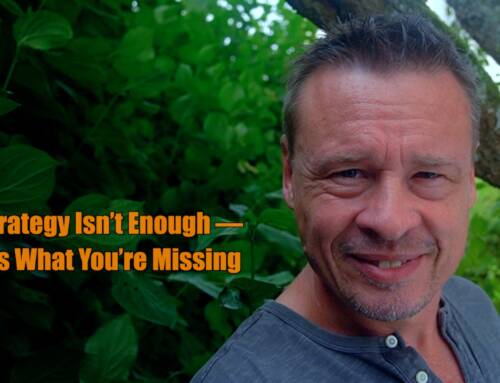This isn’t a polished theory. It’s more of a reflection—on growing up, on the desire for power, on the way cleverness has come to replace wisdom in our societies. It started with a personal observation about how we build our identities in opposition to others, and it led me to think about the world we’ve created, where entire systems seem to reward those who never really grew up. And the rest of us? We might not hold the microphone, but we’re still part of the audience that claps. What follows is less a diagnosis, more a psychogram. One that includes us all.
A psychogram of power, wisdom, and Western society
When we grow up—or rather, when we start that long, clumsy process of growing up—there’s this obvious feeling most of us have: that we’re small. Not just in size, but in capacity. And early on, we don’t really have the tools to process what that means. What we do feel, however, is that others—especially the grown-ups—are bigger, better, stronger, and for some reason, always in our way.
They tell us things we don’t want to hear. They hold us back. They call out our flaws. And because we’re still figuring out who we are, we mistake that for abuse. Or at least for unfairness. We don’t really have the power yet to protect ourselves or to get others to do what we want, and so we do what many young people do—we construct this idea that they are the problem. That they are bad. That if only we could get rid of them—these voices that remind us of our insecurities—we could finally breathe.
It’s a very human thing. And it’s not even always conscious. But it’s there. That tension between the need to be seen as strong and the inability to cope with not being there yet. And it often plays out, quite predictably, in our relationship to our parents. Especially for boys, with their fathers. There’s admiration, yes. But also a deep desire to escape their shadow. To be the one who knows better. Who doesn’t need the old wisdom. Who can reinvent the rules and come out on top. Who can finally shut the others up.
And that’s exactly the script you’ll find in so many films, stories, myths: the king and his son. The son—talented, ambitious, clever—wants the throne, wants the people’s love, wants the father’s power. And he almost always fails. Not because he isn’t smart, but because he isn’t wise. He hasn’t digested the lessons. He resents the fact that those lessons were ever imposed on him in the first place.
It’s the same story with the modern world. We have an entire machinery—from marketing to politics to digital media—that has picked up all the great wisdoms of the world and turned them into empty slogans to sell products. “Be yourself.” “Be in the moment.” “Change starts from within.” All the phrases that once had meaning, all the things your wise old uncle might have said to you after a long walk—now reduced to lifestyle branding.
Even the archetype of Lucifer, as portrayed in movies and shows—he’s not ugly, he’s not brutish, he’s not even obviously evil. He’s dazzling. Smart. Sexy. Able to drink all night, deliver monologues about philosophy, quote the Bible if needed, and always land on his feet. He’s the perfect figure for this cultural moment: all brilliance, no humility. A character who can acknowledge the wisdom of the world and still reject it. Who knows the rules and chooses to play outside them. But not because he’s transcended them—because he’s too proud to grow.
And then there’s politics. Especially in the United States, but not only. We’re watching a group of people rise to power who look like the children of the elites, but not the heirs. The baby-faced men who never truly sat at the table with the grown-ups. Who weren’t formed by struggle, but by branding. And they didn’t grow up in the house of wisdom—they grew up in the kitchen. They know how to win over the staff, how to charm the crowds who feel ignored, how to speak in slogans that sound like truths. But they don’t speak from truth.
Because real wisdom can’t be mimicked. You either have it or you don’t. And the irony is, many of these new leaders seem to hate the people who treated them with the most dignity—those who didn’t punish them for their mistakes, but showed them quiet respect, even when they acted foolishly. But that kind of treatment only makes them hate the wise even more. Because it reminds them of what they’ll never be.
And here we are, with a machinery that rewards that exact immaturity. We’ve built a system that celebrates cleverness and performance, but shies away from depth. A system that applauds the person who can quote wisdom, but not the one who lives it. Social media, marketing, politics—it’s all wired to amplify the loudest, not the wisest.
And maybe that’s the real issue. It’s not just a few narcissists in powerful positions. It’s a whole system of narcissism. Institutionalized. Rewarded. Normalized. People like to talk about narcissistic personality disorder as if it’s a rare pathology. But what if we’re dealing with something broader—a cultural narcissism? One that begins in unresolved adolescence and gets fed by algorithms, by PR departments, by political strategists who know exactly how to weaponize insecurity.
It’s easy to say this is about individuals. But Freud—yes, Sigmund Freud—didn’t just concern himself with individuals in therapy. A large part of his work was devoted to the psychology of culture and society. In Civilization and Its Discontents, he tried to understand how societal structures form and how they suppress, guide, or channel human drives. He was trying to sketch out what happens when whole civilizations operate under the same emotional and psychological patterns. And that part of his work is often overlooked.
Because we’re not just dealing with damaged people—we’re dealing with a damaged cultural system. One that mistakes performance for depth. One that elevates the clever over the wise. One that builds entire industries on the fear of being small, and then sells us the illusion of power.
And part of growing up is recognizing that others telling you what you don’t want to hear doesn’t make them bad. That not getting what you want doesn’t make the world unjust. And that the people who held you back at times were sometimes doing it because they had already learned something you hadn’t.
It takes time. It takes humility. But you get there. You realize that wisdom isn’t just about being right or being clever—it’s about knowing when to listen. Knowing when to step back. Knowing that the world doesn’t owe you love or power or applause. And that those who once stood in your way might have been the ones actually holding you up.
So maybe the final step isn’t rebellion. It’s not proving the wise ones wrong. It’s thanking them. Not with a speech or a tweet, but by finally becoming wise yourself.
And if you feel like you’re one of the good ones, one of the progressives or the enlightened, here’s the uncomfortable truth:
You can’t call out the narcissism of others without facing the narcissism built into the very structure of the society we all benefit from. The culture of performance, of curated selves, of selling images instead of substance—we’ve all played a part in that. We cheer for the spectacle, even as we critique it.
So no, it’s not enough to name the narcissist in the room. The real challenge is recognizing the glass house we’re sitting in. And if we’re serious about wisdom, maybe we start by putting down the stones.




